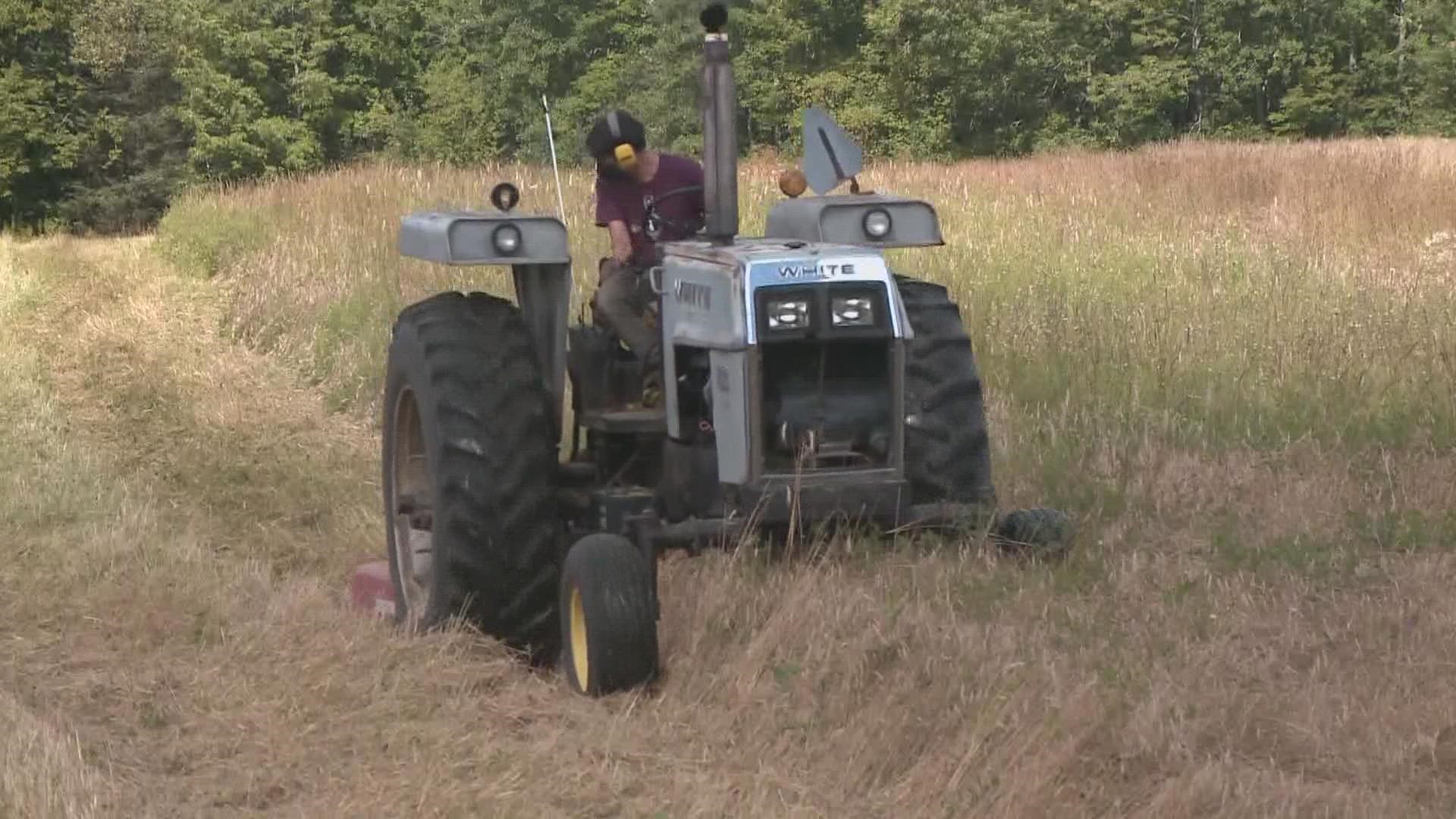UNITY, Maine — Farmers and agricultural producers reeling from contamination from so-called toxic chemicals known as PFAS continue to face an uncertain future.
The source of the pollution comes from leftover municipal biosolids, used as fertilizer for decades. But an out-of-work organic farmer found a new way to plow forward as an advocate to keep farmers afloat and protect the environment.
Adam Nordell is busy mowing his fields of heritage grain. For the first time in eight years, these wheat kernels won't be harvested. But he still has to maintain his fields. Across the street, greenhouses once filled with organic vegetables are empty. This farm is another casualty of a toxic nightmare unfolding across Maine.
"I struggle to find the right metaphor to describe the stress unleashed on my family," Nordell said.
Adam and his wife, Johanna Davis, own Songbird Farm. They pulled their organic grain and vegetables from shelves over concerns about contamination from toxic industrial chemicals known as PFAS.
"It was not safe for us, and we are not willing to sell contaminated food," Davis said.
After discovering this field, the couple leased to grow grain had been spread with sludge laced with PFAS in the early 90s. They tested their produce, water, and soil, and all tested positive for PFAS. Their drinking water was 400 times more than Maine's safe limit for PFAS. Later, they also discovered high levels of the chemicals in their blood. The couple, who have a toddler, later found out their 40-acre farm, including the land underneath their home, had also been spread with sewage sludge.
"There was no future farming this land," Nordell said.
Earlier this year the couple and other producers joined Defend Our Health and helped pass a flurry of PFAS-related bills in the legislature. From banning the use of industrial and municipal sewage sludge as fertilizer to 60 million dollars in funding for research, income replacement, and medical monitoring for impacted farmers. While Nordell and his wife also had to make a difficult decision not to produce food from their land, he is now on a new path.
As Defend Our Health's campaign manager for contaminated farmland, he works to ensure laws enacted in 2022 supporting impacted farmers and protecting farmland and natural resources are moving forward.
"The state is working on getting the programs in place to support people economically, and how to pivot if they can pivot,' Nordell said.
Administration of a $60 million PFAS fund is still being set up. Meanwhile, the Bureau of Agriculture, Food and Rural Resources under the Department of Agriculture, Conservation and Forestry, is sending out one-time income replacement checks to Nordell and others, including Arundel dairy farmer Fred Stone, who first sounded the alarm about PFAS.
It's a much-needed boost to help those grappling with devastating financial losses a chance to rebuild.
For more information on the health impacts of PFAS from the ATSDR go here.
For more information on the statewide PFAS investigation being conducted by the Maine Department of Environmental Protection go here.

